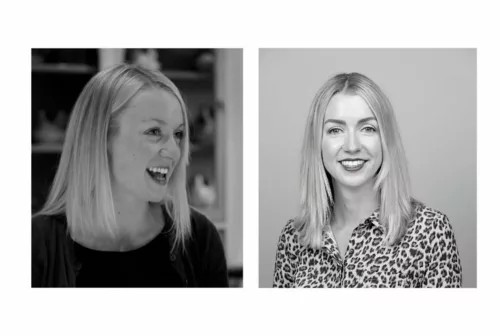Championing women, championing change: reflections on a decade in the built environment industry.

When I entered the built environment sector in my early 20s, I’ll admit that I was naïve. At school and university I’d been used to largely gender balanced classrooms. It is well documented that girls tend to out-perform boys in school so I was also used to being perceived and understood by my peers and teachers as intelligent and respected. A self-proclaimed feminist from a young age, I’d been lucky I suppose to have emerged from young adulthood never feeling like I’d been treated differently because I was a woman. My passion for feminism came from a place where I found it unfathomable that I should ever be so. One might even say I entered the working world feeling quite cocky. Boy was I in for a rude awakening.
’ll never forget my first project team meeting, hosted at a well-known planning consultancy firm. I walked into the board room, faced with 15 men in suits. For the first time in my life, I was aware that I was the only female in the room. Finally realising what it felt like to be a minority, that uncomfortable feeling of not belonging or recognising anything of yourself in the others you see. I am aware of how privileged I am as a white female to have only felt that at the for the first time in my twenties and I’ll admit it was something I was wholly unprepared for. Luckily, I was very junior and not expected to say much but that wouldn’t last forever.
A year or so later, I entered a similar meeting this time as a manager leading the account. The site was in an area I knew well and I questioned the client’s approach to engagement, suggesting an alternative. My advice was immediately disregarded as inaccurate. A male consultant from another discipline later in the meeting made the exact same point I had done minutes before and the response was completely different. He was applauded for his strategic advice, credited with saving the client from making a terrible oversight. I couldn’t believe it. This is what it felt like to be disregarded, invisible. I was so shocked I didn’t speak up and claim the credit.
Over the last few weeks, I’ve spoken to female colleagues and clients (of which I am lucky to have so many now) about their experiences over their career and we all have similar stories to tell. From overtly demeaning comments from one regional housebuilder whose technical department referred to me as ‘Barbie’ to subconscious biases experienced by a colleague when clients assume a male junior is the project lead simply because they are male. Sadly it is all part and parcel of being a female.
At Meeting Place, we’ve worked hard over the years to bring awareness to the different experiences of women in our sector through our gender champions campaign. I’ve also been lucky enough to have a brilliant female mentor who picked me up, dusted me off and built my confidence back up after my various discriminatory experiences and I am now in the fortunate position to provide the same mentorship to the women who work for me.
As I reflect on my last ten years in this industry, there is loads to celebrate. It really does feel like a different sector to the one I entered. I cannot remember the last time I was the only female at a team meeting or when I was last invited to an event with an all-male panel. Jenny Daly’s historic promotion is also a huge step forward. These important shifts towards visible gender diversity will help encourage girls and young women to consider the built environment for their career and that the sector will evolve to be reflective of those within it.
We can’t get complacent however and I worry that whilst we have taken steps to address conscious sexism, we are still many years off addressing unconscious sexism that has been engrained over centuries. My colleague Rachel wrote about how this plays out in the design of our spaces in her recent blog and from the stories heard from colleagues, it certainly still plays out in the day to day working lives of women. We therefore need more gender champions, more representation, and more discussion about the different ways genders experience the world as without a recognition of the difference, everything will stay the same.
